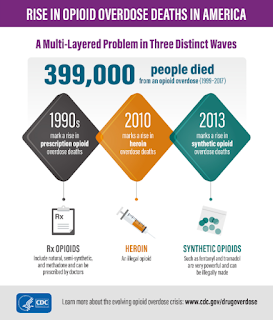Chris Jewett
cj083711
Marketing and Public Relations are how products and advancements in technology are introduced to the public for as long as there has been buyers and sellers. It should ensure that consumers are aware of the goods and services that are available to them and that have an understanding of what they are purchasing. There have always been liberties taken by companies in the way they have presented their products. From the snake oil products of the 1800s to herbal remedies and all of the other "miracle" cures that have come since there have been marketing programs to support them. Typically the products were of no real benefit but in most situations, they did no real harm.
The opioid crisis that exists today is an entirely different situation. These products can and do have a legitimate role to play in our modern healthcare system. However, intense competition and extreme revenue potential have led deceptive marketing and outright misrepresentation of known facts.
Other than loyalty to those they represent, it appears that virtually none of the other principles included in the Public Relations Society of America (PRSA) Code of Ethics have been followed. The large pharmaceutical companies and their marketing partners produced countless testimonials by doctors stating that when used correctly these products were very effective and that there was an extremely low likelihood of addiction. These testimonials were very often done by highly incentivized doctors without that being disclosed.
Even after it was widely known that the likelihood of addiction was actually quite high and could begin with days of beginning to use the product, no update was released so that an informed decision could be made by the public. The frequency and volume of pills subscribed continued to skyrocket. Even as the numbers of addicted and dying continued to climb it doesn't appear that the PRSA guideline of investigating the accuracy of the information released on behalf of the client was followed.
 |
Much like the tobacco industry spent decades defending their product. Big Pharma repeatedly claimed there was no evidence that prescription painkillers were addictive, if used correctly, and carried with it various severe health risks.
When it became abundantly clear that this was not the case, Congress got involved and due at least in part to significant lobbying efforts by industry insiders and their counterparts at the various enforcement agencies, very little was done.
Sadly, from drug makers to their marketing and public relations firms to the government regulatory agencies responsible for oversight, this was a total breakdown of any ethical standards of doing business in the 21st century.
No comments:
Post a Comment